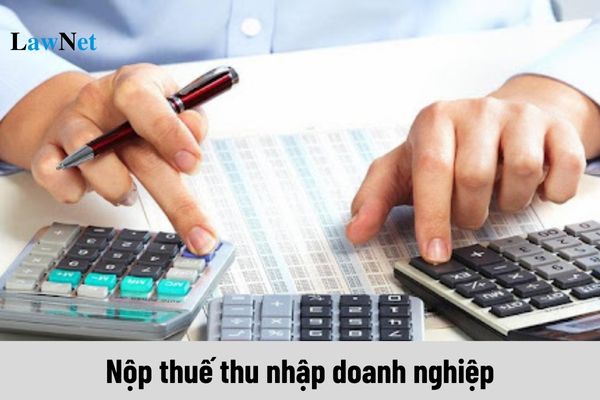Are enterprises in Vietnam required to pay corporate income tax upon transferring capital?
Which entities are required to pay corporate income tax in Vietnam?
According to Clause 1 Article 2 of the Corporate Income Tax Law 2008, taxpayers are goods and service production and business organizations that have taxable incomes under the provisions of this Law (below referred to as enterprises), including:
- Enterprises established under Vietnamese law;
- Enterprises established under foreign laws (below referred to as foreign enterprises) with or without Vietnam-based permanent establishments;
- Organizations established under the Law on Cooperatives;
- Public service providers established under Vietnamese law;
- Other organizations engaged in income-generating production and business activities.

Are enterprises in Vietnam required to pay corporate income tax upon transferring capital? (Image from the Internet)
Are enterprises in Vietnam required to pay corporate income tax upon transferring capital?
Under Point a Clause 2 Article 3 of Decree 218/2013/ND-CP and Article 14 of Circular 78/2014/TT-BTC, the income from capital transfer is subject to corporate income tax.
To be specific:
An enterprise’s income from capital transfer is income earned from the transfer of part or the whole of the capital amount the enterprise has invested in one or many other organizations or individuals (including the sale of the whole enterprise).
The time of capital transfer is the time of transfer of capital ownership.
In case an enterprise sells the whole single-number limited liability company which it owns in the form of capital transfer together with real estate, it shall declare and pay CIT for transfer of real estate and fill in the CIT return (form No. 08) promulgated together with this Circular.
In case an enterprise transfers capital and receives in return property or other material benefits (stocks, fund certificates, etc.) instead of cash and earns income from such transfer, such income is liable to CIT.
The value of property, stocks or fund certificates shall be determined based on their selling prices on the market at the time of their receipt.
Which incomes are not subject to corporate income tax in Vietnam?
According to Article 4 of the Corporate Income Tax Law 2008, amended and supplemented by Clause 3 Article 1 of the Law on Amendments to Corporate Income Tax Law 2013, and amended by Clause 2 Article 1 of Law No. 71/2014/QH13 on tax amendments 2014, the income not subject to corporate income tax include:
- Income from farming, breeding, cultivation and processing of agriculture and aquaculture products, salt production of cooperatives; income of cooperatives engaged in agriculture, forestry, aquaculture, or salt production in disadvantaged areas or extremely disadvantaged areas; income of companies from farming, breeding, cultivation and processing of agriculture and aquaculture products in disadvantaged areas; income from marine fisheries.
- Income from providing direct technical services to agriculture.
- Income from performing scientific research and technological development contracts, products under trial production, and products generated from new technologies first applied in Vietnam.
- Incomes from the production and sale of goods and services of enterprises that have at least 30% of the employees are disabled people, detoxified people, suffer of HIV/AIDS, and have at least 20 employees, except for enterprises engaged in finance and real estate business.
- Income from vocational training activities exclusively for ethnic minorities, disabled people, children with special circumstances, and social evils subjects.
- Income distributed from capital contribution, joint ventures, and affiliations with domestic enterprises, after having paid corporate income tax by this Law.
- Donations received for use in educational, scientific research, cultural, artistic, charitable, humanitarian, and other social activities in Vietnam.
- Incomes from the transfer of Certified Emissions Reductions (CERs) of enterprises issued with CERs.
- Incomes from the performance of tasks of the Vietnam Development Bank, which are assigned by the State, in credit for development and export; incomes from granting credit to the poor and beneficiaries of policies of Vietnam Bank for Social Policies; incomes of state financial funds and other state funds serving non-profit purpose incomes of organizations, of which 100% charter capital is possessed by the State, that are established by the Government to settle bad debts of Vietnamese credit institutions.
- Undistributed incomes of private organizations, which make investment in education, health, and other fields, that are kept to serve their development in accordance with the laws on education, health, and other fields; the incomes that form the undistributed assets of cooperatives established and operating in accordance with the Law on Cooperatives.
- Incomes from transfer of technologies that are prioritized to be to organizations and individuals in extremely disadvantaged areas.

